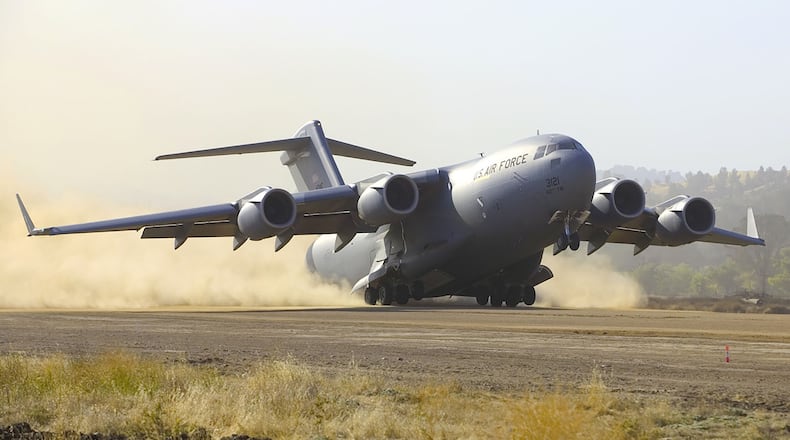When something absolutely positively has to get there, the C-17 is the aircraft for the job. The prime example is its performance in the withdrawal from Afghanistan, Operation Allies Refuge, the largest non-combatant evacuation airlift in U.S. history. The C-17 was key in evacuating more than 124,000 people over 17 days at the end of August 2021.
“When you think back about the last few weeks in August, and just the turmoil that all happened in a very short period of time, the C-17 was kind of the foundation for that entire operation,” said Col. Amanda Okeson, senior materiel leader for the C-17 Division headquartered at Robins AFB, Georgia.
“In a matter of days, we went from just normal standard operations to over 80 C-17s forward deployed in the theater.”
In many ways, it was the kind of mission the C-17 was designed to perform. It was intended to bridge the gap between the giant strategic airlift provided by the C-5 Galaxy and the tactical C-130 Hercules. It was meant to lift heavy loads but still be able to get into tight and austere environments. It needs a mere 3,500 feet to land and can use its reverse thrusters to execute a three-point turn to get back up again.
“C-17 is really flexible. When you look at the mission set, you can do that strategic airlift, the long passenger carrier kind of mission. It’s also used for short takeout and landing,” Okeson said. “I think it’s pretty amazing.”
There are 275 aircraft in operation by the U.S. Air Force and international partners around the world.
“I’ll tell you that C-17 right now can last for quite some time. I expect it’s going to be in the inventory for many more years,” Okeson said. “There’s a lot of legs left on this platform.”
To hear the full conversation, you can watch Leadership Log on YouTube at https://youtu.be/ygCv9LS0Fzw. You can also listen by searching “Leadership Log” on Apple Podcast, Google Podcast, Spotify, Overcast, Radio Public or Breaker.
About the Author
